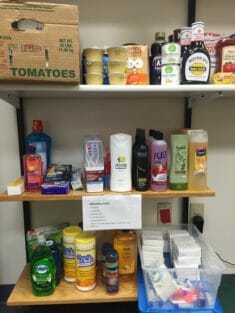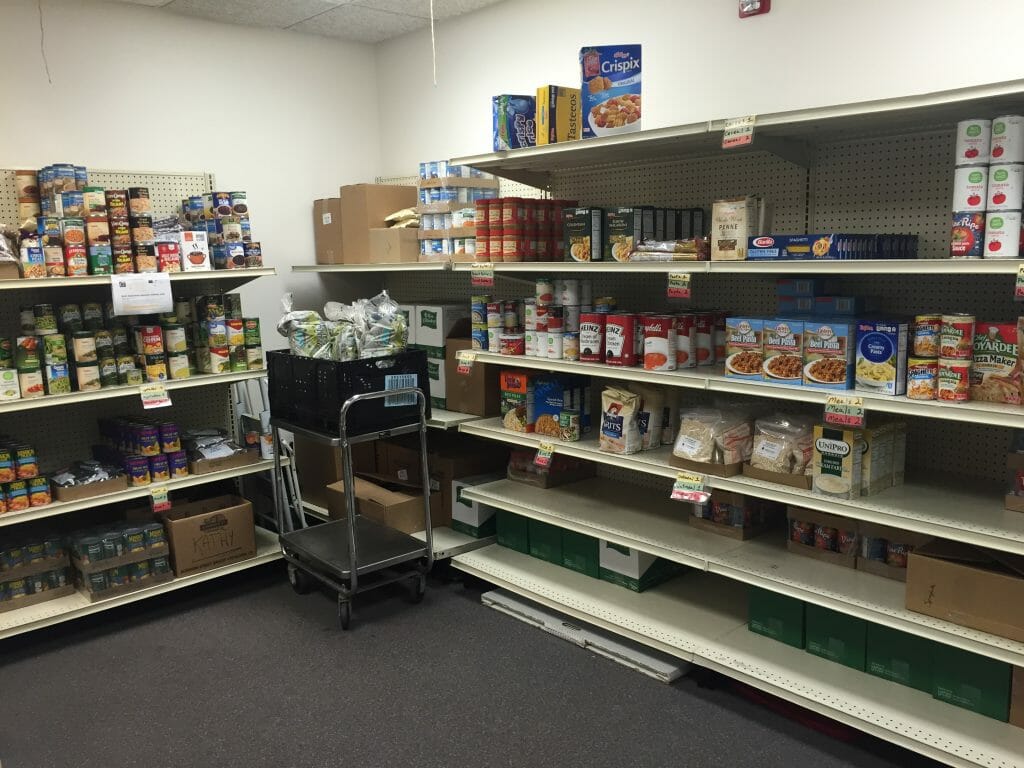Guest Blog: A Little Goes A Long Way
Guest blog by member Sarah Gilbert, of Gilbralter Farms, near Iowa Falls

Sarah Gilbert
For all PFI members, food is a passion as well as a basic need. Farmers want to feed people and share great products. But growing food isn’t the only way you can help feed your neighbors. After one year of volunteering at my local food pantry, I’ve seen the impact small amounts of time, energy and transportation can have in communities.
For about two hours each week, I pick up donations of dented cans and damaged items from the grocery store, check expiration dates, stock food pantry shelves and help customers shop the pantry. Another volunteer picks up day-old bread from the grocery store two days a week and brings it to the pantry. We post fliers for community meals sponsored by local churches. The local elementary schools and Cub Scouts do annual food drives. And our community will soon have Little Free Pantries installed, letting people donate and receive food without filling out applications or paperwork. In many cases, the organization and infrastructure are in place, we just need more people power.
While attending the Iowa Hunger Summit last month (where PFI hosted a wonderful breakout session on increasing access to local food), I learned there are over 500 organizations in Iowa fighting hunger. And there are certainly Iowans in need: 43% of Iowa children receive food assistance (formerly known as “food stamps”). As the foundation of our food system, farmers definitely have a role to play in eliminating hunger. While I know many of us are already strapped for time and resources, there are small ways to help:
- Offer to transport donations from grocery stores, convenience stores, or meat lockers.

Donated personal hygiene and cleaning products
- Use extra storage space to gather items from a food drive or donations from your customers.
- Plant an extra row of produce to donate, a recent focus of the Master Gardener program.
- Deliver Meals on Wheels, help sort donations, or help with clerical work.
- Donate a functioning refrigerator or freezer if upgrading or replacing yours.
- Start a seed lending library.
- Use lumber from old barns or buildings to make Little Free Pantries.
- When attending or hosting an event, ask what happens to the unconsumed food, and be the connection between available excess and those that are hungry.
- Team up with local 4-H or FFA groups or other volunteers to glean your garden at the end of the season.
- Make a cash donation. Many pantries are able to purchase food, especially canned food, at a volume discount. Items like toilet paper, laundry detergent, hygiene products, and diapers are less commonly available but in high demand.
This is certainly not an exhaustive list, and I look forward to other suggestions and experiences. For a searchable database of existing organizations and resources, the Iowa Hunger Directory can be found at https://www.iowahungersummit.org/en/the_iowa_hunger_directory/. A little help goes a long way. One night a month. Two hours a week. One extra row in the garden. What can you do?

Food pantry at Mid-Iowa Community Action office in Iowa Falls
